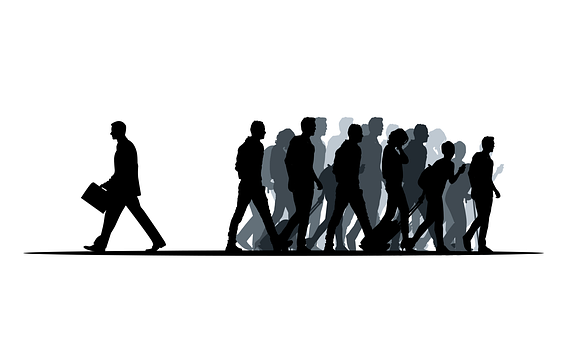Mental Health for Returning Citizens

Credit: Harut Movsisyan
There’s a quote from the Public Health Rep that states, “Being released from prison can be just as stressful as entering prison.” (Massoglia, 2019) It’s completely normal to feel lonely when you’re returning back home. Merriam-Webster dictionary defines Loneliness as, “not frequented by human beings” or “being without company.”
This is common for returning citizens due to the busy schedules of their loved ones, trying to re-engage with the community, and feeling like you have missed out on things. It is healthy to feel your feelings! However, it is important not to remain stuck in loneliness. Here are 5 ways to cope with loneliness after returning home:
- Don’t distance yourself!
Because of the guilt and shame that comes with returning into society, it is easy to lose yourself in feelings like loneliness. Most people will start to distance themselves from their loved ones’ due to fear of being a burden or not good enough. But this will hurt your mental health and most likely, your loved ones too! It is important to stay around your loved ones, talk to them about the feelings you are going through and what they might be experiencing. This will help reduce loneliness for both parties and ensure you have a good support system.
2. Find a job!
It is harder to feel completely alone when you are surrounded by people all day and when you have a purpose. It feels good to know you are contributing to your family or even just to yourself. Not only will a job keep you busy during the day while also earning money, it will give you chance to connect with people that may be interested in similar things as you.
3. Make a schedule!
Have free time? Fill it with something to do! Write out what your day will look like tomorrow or the rest of the week. For example, wake up in the morning and make breakfast, call your mom before going to work, work all day, come home and make dinner, watch a movie, take a shower, go to bed. It may seem redundant now, but looking at your schedule on paper and having a structured routine will have great impacts on your life!
4. Find a hobby for yourself!
It may be hard to find people to befriend immediately. It is important to have a hobby that is just yours in the meantime. This can include reading, painting, hiking, learning how to play an instrument, going to the gym, etc. Hobbies by yourself are important in maintaining your solitude but also by providing something that is special to you.
5. Talk to a licensed therapist!
It is important to note that while you should find a job and hobby, you shouldn’t use those to hide or run away from your feelings. It is completely natural to feel loneliness, shame, guilt, anger, sadness, etc. A licensed therapist can help you sort through these feelings and find ways to cope, specifically designed for you. Taking care of your mental health is just as important as taking care of your physical health.
Happiness can be hard to achieve sometimes, for everyone. That is completely normal.
However, it is important to be aware of the coping mechanisms and strategies to becoming happy to ensure positive outcomes in life. Research shows that people who are happy, tend to achieve better outcomes in all areas of their lives. Positive emotions are a necessity for growth and change! (Cohn et al., 2009)
Cohn, Michael A., Fredrickson, Barbara., Brown, Stephanie L., Mikels, Joseph., Conway, Anne. (2009). Happiness Unpacked: Positive Emotions Increase Life Satisfaction by Building Resilence. PubMed Central. 9(3). 361-368.
Massoglia M, Remster B. (2019). Linkages between incarceration and health. Public Health Rep. 134(1). 8-14

